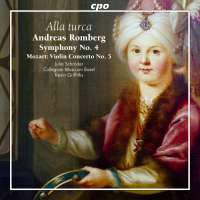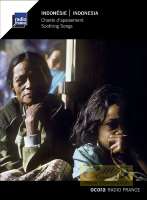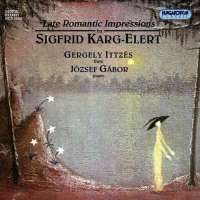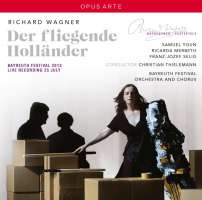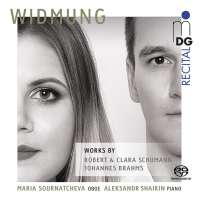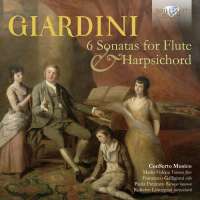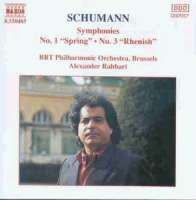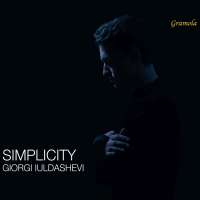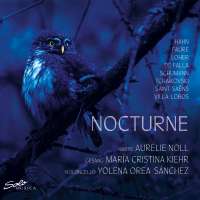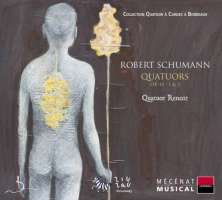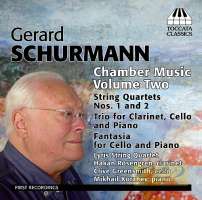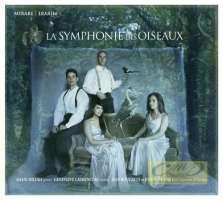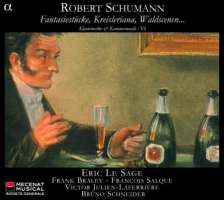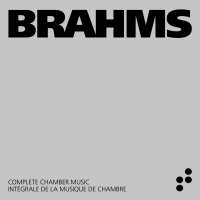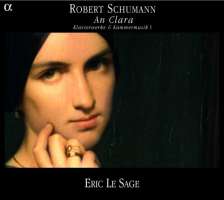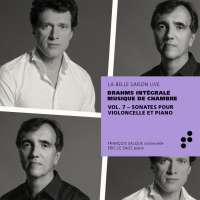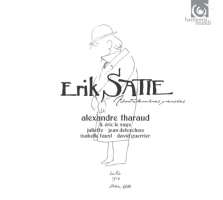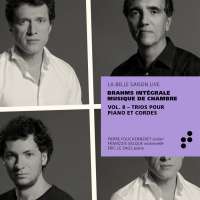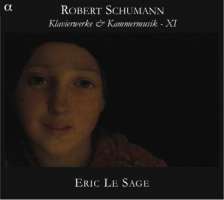
kompozytor
Schumann, Robert
tytuł
Schumann: Dichterliebe
wykonawcy
Le Sage, Eric;
Prégardien, Julian;
Piau, Sandrine
Prégardien, Julian;
Piau, Sandrine
nr katalogowy
Alpha 457
opis
Julian Prégardien decided to record the Dichterliebe cycle after he came across the new Bärenreiter edition; he went on to explore the work in concerts with his constant accompanist, Eric Le Sage, inserting other works by Robert and also by Clara Schumann, whose bicentenary is celebrated in 2019. When Clara played the Dichterliebe in the 1860s, she used to slip extracts from Kreisleriana between the songs. Prégardien asked Eric Le Sage to record the same extracts on a Blüthner piano of 1856, the year of Robert’s death, and also to include Romances composed by both Robert and Clara at a time when their future marriage was still uncertain. The sublime ballade Löwenbraut also forms part of the programme – a reminder of the young Robert’s anguish on Clara’s departure. At Julien’s suggestion, Sandrine Piau was invited to sing three duets: a simple Canon composed by Clara, and two duets by Robert, Wenn ich ein Vöglein wär, and the sublime In der Nacht. Four further songs complete the disc: Sängers Trost, a short piece in belcanto style; Kurzes Erwachen, composed by Robert at the age of just eighteen; Aus den hebräischen Gesängen, a very melancholy song; an extract from the cycle Myrthen (Robert’s wedding present to Clara); and Mein Wagen rollet langsam, a song that was included in the composer’s first version of Dichterliebe. The Dichterliebe songs micht have been expected to show Schumann triumphantly rejoicing in that year of 1840 when he was finally able to marry Clara; and yet they are characterised by bitter irony, nostalgic Sehnsucht, and a sense of dread…
nośnik
CD
gatunek
Muzyka klasyczna
producent
Alpha
data wydania
06-05-2019
EAN / kod kreskowy
3760014194573
Produkt nagrodzony:
Classica: 'Choc de Classica' (2019)
France Musique: 'Le Choix de France Musique'
ResMusica: 'Clef ResMusica' (2019)

(Produkt nie został jeszcze oceniony)
cena 79,00 zł
lubProdukt na zamówienie
Wysyłka ustalana indywidualnie.
Darmowa wysyłka dla zamówień powyżej 300 zł!
Darmowy kurier dla zamówień powyżej 500 zł!
sprawdź koszty wysyłki





